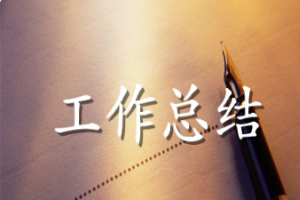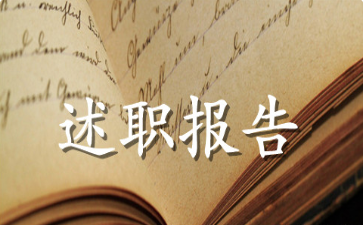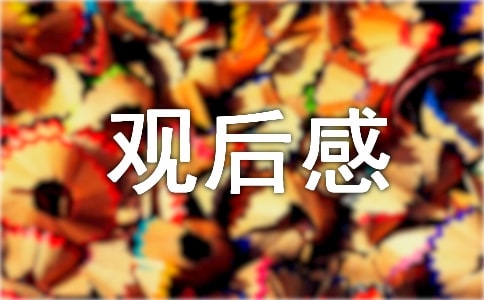gre考试备考时间不够该如何给写作“减负”
时间:2020-09-17 来源:博通范文网 本文已影响 人 
gre考试中写作也许是很多同学最后一个准备科目,那么如果时间不足该如何白考gre考试写作呢?下面小编就和大家分享 gre考试备考时间不够该如何给写作“减负”,希望能够帮助到大家,来欣赏一下吧。
gre考试备考时间不够该如何给写作“减负”?
一共有多少题目
gre写作有一个特色,也是我们应该利用的特点:它的题库是完全公开的。我们最终在考场上遇到的题目会直接从题库中抽取而出,不会做任何改变。所以,理论上讲,只要我们提前准备好所有题目,GRE写作的高分是绝对能保障的,这一点和GRE的语文和数学都不一样。
看完题库之后,大家应该心灰意冷了。不用数了,Issue部分题目:152道。Argument题目:177道。这样的“天文数字”,似乎让我们无从下手,但是……
真的有这么多道题目吗
不是的!细心的同学应该会发现,不论是Issue还是Argument,有很多题目的题干是高度相似甚至是完全一样的,重复率几乎为50%。这样一来,Issue部分我们需要准备的题目数量就变成了:152/2=76,Argument部分我们需要准备的题目数量就变成了:177/2≈89。题库直接缩小了一半。
但即便如此,gre考试题目数量还是很多,有没有办法再缩减一些呢?
要减负,就减负得狠一些
gre考生们自己在准备时,容易陷入一个对题目的错误分类方式(或说是不高效的分类方式):Issue按照“领域(即艺术、政治、科技、教育等)”分类,Argument按照“经典逻辑错误(臆造因果,错误类比等)”分类。这样的分类方式适用于老GRE,如果考生依然按照这样的分类方式,很有可能就会陷入误区。
那么,新GRE的题目分类方式应该是按照什么呢?
一个词,Instruction。
Instruction又叫Direction,中文意思是“具体性指令”或“写作要求”。
题目下面这段斜体字就是Instruction。之前有同学跟我们反映说:“曾经以为每道题目下面的这个斜体字都是一样的,所以根本不看”……
不看Instruction的后果很惨重,ETS明确说,如果不按照Instruction,最高分不会超过三分。
而Issue当中一共有6种Instruction,Argument当中一共有4种Instruction,每一种对我们行文都有不同的要求。如此看来,在面对新GRE时,我们应该按照Instruction来对题目进行分类。
这样一来,我们需要准备的题目的类别数量即为:Issue6道,Argument4道。加在一起是10道题目,是原来总题目数量的3%。这个减负力度,够狠了吧。
如果只有一周了,练几篇
这个问题也真是把我们逼上了绝路。但还剩一周才来看作文的同学其实也不在少数。在这样的时间节点上,因为Argument的套路性更强,模板也更好用,因此更好拿分,我们会告诉大家:“保Argument,争Issue”。即把重点放在Argument上面,而Issue部分只需要明白写作要点,实在没有时间就可以不做全文练习了。这样一来,我们面对GRE写作,最少应该练——4篇。
GRE写作高分范文:竞争利弊问题
题目:
"Competition is ultimately more beneficial than detrimental tosociety."
归根结底,竞争对于社会是利多弊少。
正文:
Darwin suggested that the process of evolution is one based on competition.This deadly competition weeds out the weak and only the fittest of the speciessurvives. Humans, being the product of millions of years of evolution, are bynature, competitive beings. Yet, humans are also social beings. Like the bees inthe hive, we are not very successful living completely on our own. We need tocooperate with other individuals for our survival. Thus, a conflict ensues,between our innate competitiveness, and our need to cooperate. There are prosand cons associated with both. However, it is my belief that overall,competition, is more detrimental than beneficial to human society.
First, let us try to identify why there is competition in the first place.In an environment abundant with resources, where supply outstrips demand, thereis very little need for the inhabitants to fight with each other over them. Thisis not the case on planet earth. Resources are limited, and there is constantjostling to get to the front of the queue to get acquire them. For example,thousands of prospective students apply to gain entrance to top universitiesaround the world, but there are only a handful of places in those
universities. Thus, there is competition to get into to these hallowedinstitutions of higher learning.From a utilitarian perspective, competition is agood thing. In evolution it is responsible for the elimination of "weak" genes.In the business environment, it gets rid of the weaker players. In politics, itweeds out unpopular candidates. In academia, it gets rid of weak students.
Furthermore, competition leads to self improvement. Businesses will striveto offer better products and services at lesser prices. The consumer reaps richrewards from this competitive spirit. Politicians strive to do the utmost forthe people, so they would get reelected. Students excel in there studies, tryingto outdo each other.
Thus, ostensibly, competition is responsible for the betterment of thesociety as a whole. However, this is just the superficial view. Underneath thesurface, competition, in every aspect, is slowly eating away at the very fabricof the society.
While it is true to say that competition in corporate world has broughtgreat benefits to the consumer, the society as "Missed A here"whole is playing agreat price for it. Most businesses are exploiting cheap labour in the thirdworld to maximise their profits. There are thousands of sweatshops run by wellknown western corporations in countries like Indonesia, Bangladesh and China.People are forced to work in squalid conditions, often 16 hours a day. They arelucky to receive a dollar a day for there labours. The moment a government inany of these countries try to improve the working conditions of the employees,these multinational giants flee the country, often leaving whole communitiesfacing financial ruin. The corporations are aware that there are plenty of otherlabour markets that could be exploited with gay abandon.
That is just the human cost. What about the environmental costs?Competition has forced many corporations to "stream line" their operations.Environmental standards are normally the first victims of this "stream line"process. A significant amount of environmental pollution and land degradationhas been blamed on industry, yet the factories keep producing more and more.Thousands of items go unsold each year due to competition. Only a fraction ofthis merchandise is recycled. The rest goes to the already overflowinglandfills.
GRE写作高分范文:information
GRE写作题目:
Much of the information that people assume is factualactually turns out tobe inaccurate. Thus,any piece of information referred to as a‘fact’should bemistrusted since it may well be proven false in the future.
大多数人们认为是事实的信息结果实际上都是不准确的。因此,任何据称是事实的信息都应该被质疑,因为它在将来很可能会被证明为是错误的。
GRE写作范文:
Should we be doubtful to all the information at hands because the rightnessof which is uncertain? The speaker claims so,I concede that people often commitvarious fallacies in the course of cognizing things,however I fundamentally takeexception of the arguer's assertion to mistrust every fact we might encounter.And I will substantially discuss my views thereinafter.
To begin with,the speaker seems to implicate that a fact would be provenfalse in the future under numerous circumstance. Nevertheless I prefer to arguerthat facts never change. No matter how did the Medieval Church and Inquisitionpersecute Bruno,the fact never changes that the earth is far from being thecenter of the universe as the religious sovereigns had assumed or hopedfor,while just a minor particle in it. Equally,no matter how Edison had tried toincite the public fear and distrust to the alternative current electricity,thefact never changes that Teals’ electrical system is vastly superior to hisdirect current electrical one,and would be accepted and applied in largerrange.
However,what do change are the human's objective interpretations to facts.One compelling argument to this point is that,due to the limitation of human’sknowledge and comprehensive capability,they tend to make insufficient or evenfalse understanding to the certain fact. An apt illustration is the changes ofcognition to disease. While at the ancient time,our progenitors believed the aman becoming a patient for the reason that he had conduct crimes or offendedsome ghosts or spirits,the contemporary people have well know that the varies ofpathogens are the basic causes to our diseases,and the defects of our immunesystem and so forth are also the factors as well. Another argument for thechange of comprehension to fact is that different people always observe andinterpret from different perspectives. Though the Relativity theory is not wellcompliable with the Quantum mechanism,no one call the greatness of both Einsteinand Bohr,because their theories are based on distinct views,the former from themacrocosm and the later from the microcosm.
Notwithstanding the foregoing reasons for that human tend to make fallaciesduring the cause of comprehending and cognizing facts,these reasons should neverbe the excuses to doubt every conclusion we might draw from facts. Based oncertain rational inference and proper knowledge fundament,the conclusions wemake might well be justifiable,if not completely right,to certain degree. Whatwe need to do is to promote the enterprise of pursuing the better answer and tryto use the result we have get to application,instead of wasting our time toundue doubt and suspicion. Though the medical scientists have not fullyunderstood the mechanism of how the does the implanted organ interact with thewounded body,they are not refrain from using the implanting skill to savepatients,of course the precondition or which is that this technology is muchwell established than the fundamental theory.
To sum up,while I advocate the speaker's opinion that it is inevitable forhuman to comprehend facts inaccurately,for the reason of the limitation of theabilities,I essentially disagree with his assertion that facts will continuallyalter themselves,as well as his recommendation to discredit any piece of fact.In the final analysis,I would arguer once more that facts never change andalthough the misunderstanding to them is inevitable,we should not deferourselves from the pursuit to fully comprehending them.








